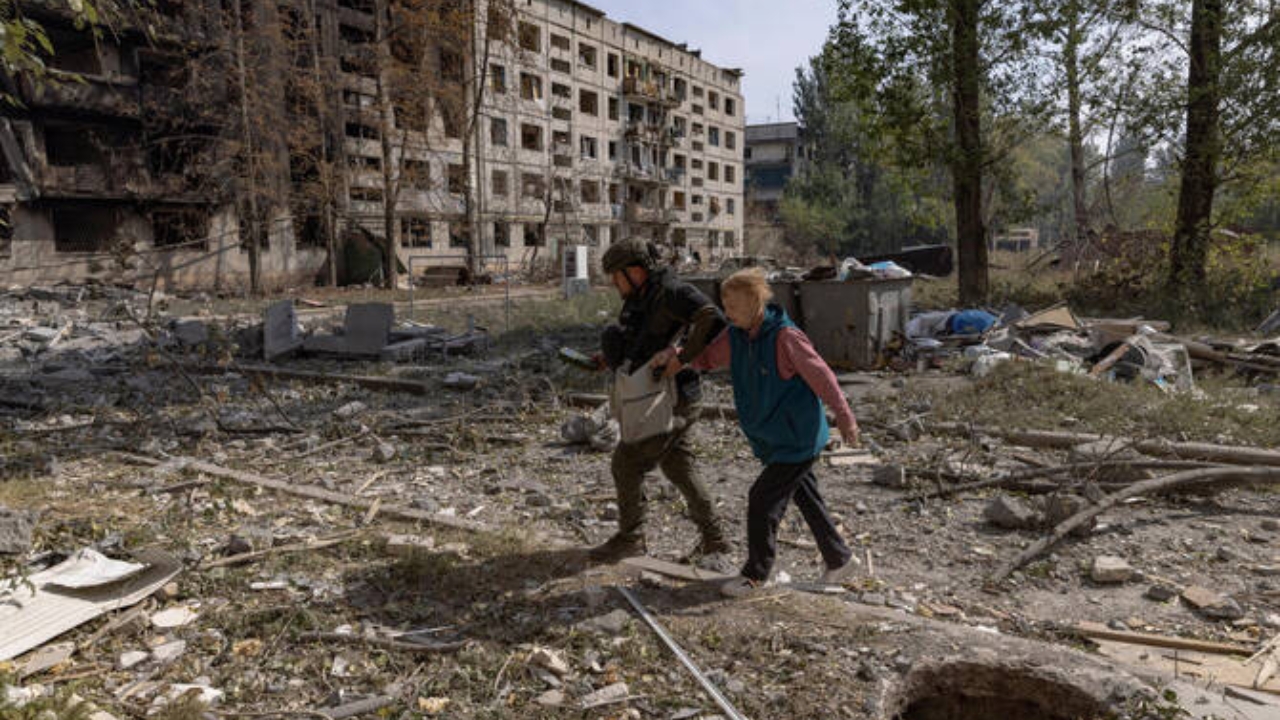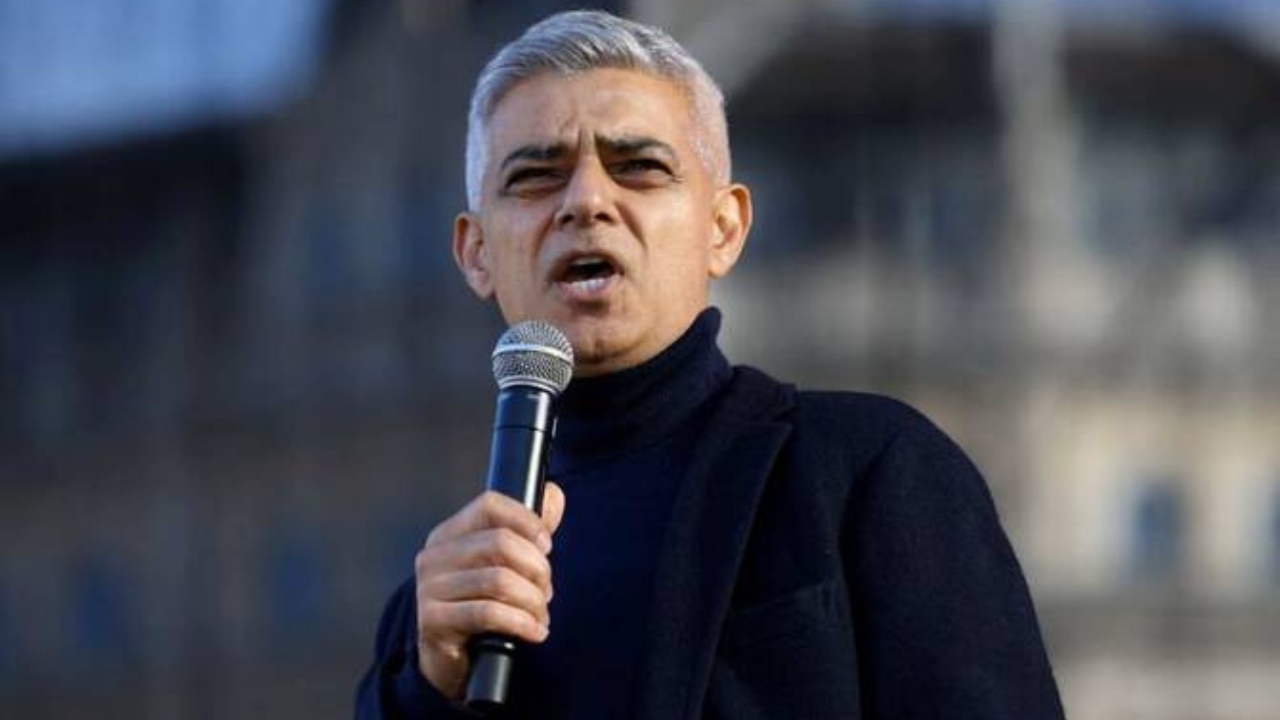
Russian Missile Strike Kills 5 Civilians in Ukrain
Russian strike kills five civilians in Ukraine's Kostiantynivka city.

Photo:Reuters
The mayor of London has shaken political circles both at home and abroad by openly accusing Israel of committing “genocide” in Gaza. His comments come at a time when the civilian death toll in the enclave has mounted to shocking levels, with entire families wiped out, neighborhoods flattened, and survivors left without food, clean water, or medicine. Beyond the heated word itself, his remark raises deep questions about morality, international law, human rights, and the role of global leadership in times of crisis.
The Weight of the Word “Genocide”
The term “genocide” is not one used lightly. It was coined after World War II to describe the systematic attempt to destroy a people, following the horrors of the Holocaust. Today, under international law, genocide stands as the most serious of crimes, alongside crimes against humanity and war crimes.
When the London mayor used the word, he did more than express emotional outrage. He pushed the debate into legal and political territory. If the situation in Gaza is seen as genocide, then the entire international community carries a responsibility to act — not only morally but legally. The 1948 United Nations Genocide Convention obligates states to prevent and punish genocide wherever it occurs.
Thus, the mayor’s remark challenges not only Israel’s actions but also the silence and hesitation of global powers who appear unwilling or unable to intervene meaningfully.
The Human Cost in Gaza
The humanitarian picture in Gaza is devastating. According to reports from aid groups and international observers, tens of thousands of people have been killed since the conflict sharply escalated. Among them, a large percentage are women and children. Hundreds of thousands have been displaced, crowding into makeshift shelters or simply living in the rubble of bombed-out homes.
Hospitals are running without sufficient fuel, medical supplies, or staff. International agencies have warned of famine conditions as food trucks are blocked at border crossings. Clean water is scarce, and outbreaks of disease are predicted as sanitation systems collapse.
These grim realities form the core of what the London mayor described as intolerable suffering. In his words, the world has no excuse to look away while an entire population faces mass killings, deprivation, and trauma.
A Divided Global Response
The London mayor’s statement reflects a growing divide in world opinion. On one side, countries like the United States and some European allies continue to affirm Israel’s right to defend itself, arguing that Hamas attacks sparked the conflict and that Israel must be allowed to protect its citizens. On the other side, several nations — including many from the Global South — argue that Israel’s response has gone far beyond defense and has instead become collective punishment of Palestinians.
Protests across Western capitals, from London to Paris to Washington, show how public opinion is shifting. Large crowds are demanding an end to military operations, labeling them as crimes against humanity. Human rights groups have issued detailed reports accusing Israel of targeting civilian areas, using starvation as a weapon, and destroying essential infrastructure.
In such an environment, the London mayor’s remark is not simply an isolated voice. It echoes a broader anger among ordinary citizens who believe their governments are not doing enough to protect human lives.
The UK’s Difficult Balancing Act
The United Kingdom now finds itself in a difficult position. The UK government has long been an ally of Israel but also upholds international humanitarian law. The mayor’s statement increases pressure on national leaders in Westminster to take a clearer stance, especially as protests grow across British cities.
For the government, ignoring the accusation of genocide could alienate a significant portion of the public and human rights advocates. At the same time, aggressively pursuing the claim could strain relations with Israel and its allies. Political analysts believe the UK may attempt a middle path — condemning the humanitarian crisis in Gaza while stopping short of calling it genocide.
But such cautious diplomacy may not be enough in the eyes of those who demand justice. As the London mayor argued, neutrality in the face of mass civilian suffering is not real neutrality; it is complicity.
Why Leadership Matters at This Time
The mayor also touched on a deeper point: the role of leadership during times of crisis. True leadership, he said, is not about choosing comfort or silence but about speaking the truth and taking action. His comments highlight the difference between political rhetoric and moral responsibility.
In recent years, leaders have grappled with crises ranging from the Syrian war to the Rohingya refugee crisis in Myanmar. Each time, critics have pointed out that global responses were too weak, too slow, or too fragmented. The Gaza crisis may now be remembered as another such moment unless leaders step forward with courage.
Historical Memory and Accountability
One reason the word “genocide” stirs such deep emotions is because of history. The Holocaust, Rwanda in 1994, Bosnia in the 1990s, Darfur in the 2000s — the world has seen repeated cases where mass atrocities unfolded and outside powers failed to step in early enough.
Calling Gaza a genocide forces us to ask: are we repeating the same mistake of silence and delay? International law is built not just on principles but on precedent. If powerful nations fail to act now, the very meaning of “never again” becomes hollow.